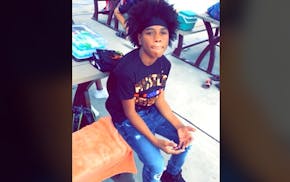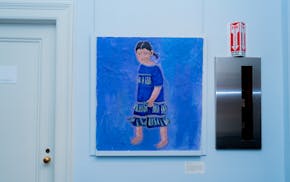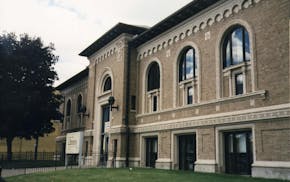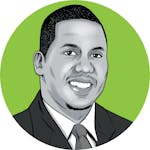More than 20 years ago, former Star Tribune reporter Bob Franklin, who died last month at age 87, changed my life as the embers of nearby fires still burned.
"Hey," he asked at the time. "Have you ever thought about an internship at the Star Tribune?"
In 2003, the aftermath of a homecoming football game at Minnesota State University Mankato grew into a riot that made international news. Our team had lost but the parties that followed had grown by the hour until an explosive clash with police erupted into disaster. Back then, I was the editor of our school's paper, the MSU Reporter, and our publication had the first reporters on the scene just before midnight as the chaos unfolded.
Dumpsters burned near campus. Property had been destroyed. Cars had been flipped. And when police cleared the area after midnight, they used pepper spray and dogs. It was madness.
Franklin, a reporter who spent nearly four decades with the Star Tribune, had been sent to Mankato to cover the news conference and aftermath the following day. As a journalism student who aspired to one day work for a big-league newspaper, I admired Franklin the moment I met him. He was a dogged reporter who cared about the details.
After the charges against those involved in the riot were announced, he came to my office on campus to learn more about the suspects.
"Are you kidding me?" he said when we discovered that some of them had been law enforcement majors who had unknowingly made one of the biggest mistakes of their lives.
He had only known me for 24 hours or so when he pitched the idea of an internship with the Star Tribune. I had not considered it. My dreams were smaller then. I was just happy to get paid to write stories for the campus newspaper. But Franklin helped me envision a different future for myself. He encouraged me to pursue it, and then he connected me with the folks who offered me the opportunity to work at the Star Tribune, which commenced my professional career in the field. That internship led me on a journey that has taken me to places I may never have seen had Franklin not opened that door for me.
He was my advocate and ally.
Franklin did things his way. He would pad around the newsroom in his socks. And if you walked by his cluttered desk, he was rarely there. He was always on the move, searching for the next story. To Franklin, the story wasn't in the newsroom. It was somewhere else and you had to find it, he would tell me.
But more than anything, he cared about people. I know he cared about me.
Franklin's mentorship and support changed my future. I don't know what he saw in me, but he thought highly enough of our interactions in Mankato to pull me into the deep pool of candidates who'd sought a summer internship.
His advocacy then is the reason I care so much about mentorship today. Whenever I get the opportunity to provide advice or guidance to a young journalism student, I do my best to do it with the same benevolence Franklin gave me. I know I'm not alone. He left his mark on others, too. Because he enjoyed his role as a champion for the next generation of reporters.
And while his mentorship changed my world, it was not his only fingerprint on my life.
Shortly after I'd started the Star Tribune internship, Franklin and I drove down to Wanamingo, Minn., where severe flooding had led to a young man's death. Others were missing in the water. It was the first time in my career I'd covered a scene that involved tragedy.
Near a bridge by a river, the family of the victim hoped for good news. Franklin and I watched as those folks wondered if that day might be the worst day of their lives.
Still, we had a story to publish. That was the job. But Franklin didn't walk around the scene with his notebook. He was a human being first. As he spoke with devastated family members, he showcased his empathy. The words that would soon land on a page were secondary to the circumstances, he told me.
As a reporter, I sometimes parachute into people's lives in their worst moments. That's the gig. But Franklin's professionalism and humanity in Wanamingo that day taught me to first think about the emotions of those who would have to navigate devastating situations long after we'd left.
Although we lost touch after he left the Star Tribune in the early 2000s, I told him often — when I saw him — that I'd appreciated his grace toward me. He wouldn't accept the credit. That wasn't his way. But I don't know where I would be today if Franklin hadn't driven down to Mankato and started a conversation with me hours after a riot in 2003 had caused millions of dollars in damage.
He had a choice, though. Franklin could have just asked me for the information he needed for his story and then left town. Instead, he did the only thing he knew to do: He made a friend.
Thanks, Bob.

Medcalf: This summer, let's all be more vigilant about our children — and everyone else's

Medcalf: Mia program provides safe space for young people to create

Medcalf: George Floyd's daughter, now 11, on life without her dad: 'It's hard'


